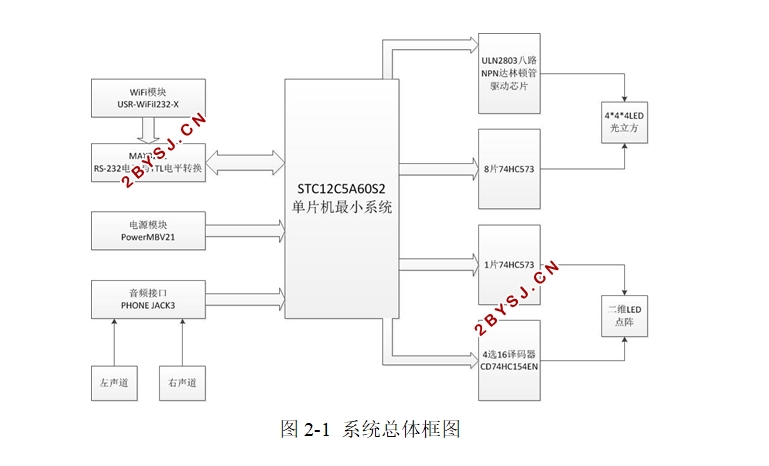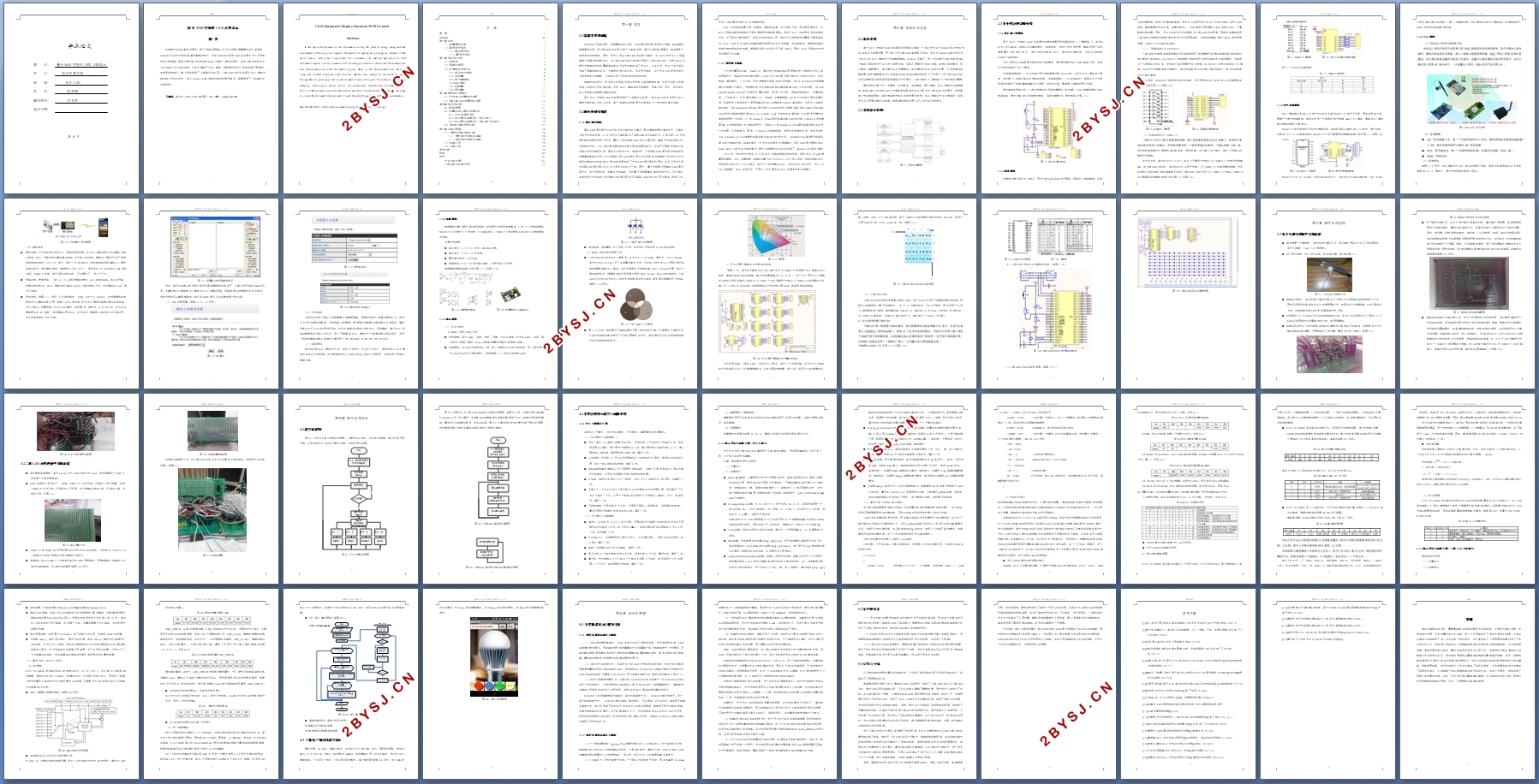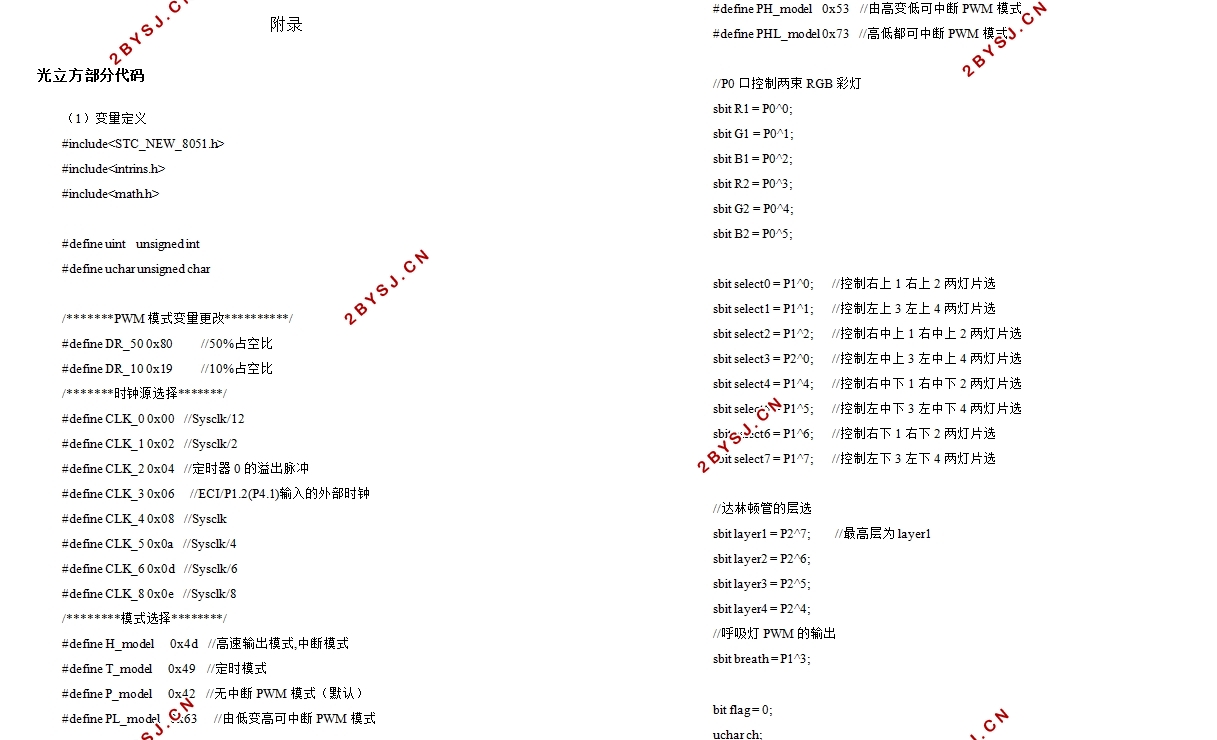基于WiFi控制的LED点阵显示设计
无需注册登录,支付后按照提示操作即可获取该资料.
基于WiFi控制的LED点阵显示设计(任务书,开题报告,外文翻译,论文17500字)
摘 要
在信息化社会的高速发展中,基于节能的需要以及人们对照明质量要求的不断提高,LED在人们的生活中扮演着很重要的角色,而在LED的应用中LED点阵显示为一个很常用的应用领域。本设计通过单片机来实现LED二维和三维点阵显示,其中三维点阵即光立方由RGB三色LED组成。并且还增添了WiFi模块,能够通过手机应用来切换不同模式,使其更加智能化。整个系统结合了二维单色点阵屏、三维LED全彩点阵屏及WiFi模块无线控制三大新兴技术,加上Android客户端来控制点阵显示模式,结果带来了五彩缤纷的视觉呈现。
关键词:单片机 LED LED点阵显示 WiFi模块 Android客户端
LED Dot-matrix Display Based on WiFi Control
Abstract
In the rapid development of our information society, the need of energy saving and the requirement of the people to improve the quality of lighting are growing up. Because of the above reason, LED plays a significant role in human's life, and the application of LED dot-matrix display is a very common field. This design via MCU to achieve the two-dimensional and three-dimensional LED dot-matrix display, where in the three-dimensional lattice is composed of RGB trichrome LED. And also add the WiFi module. It can switch the mode through the cell phone applications, which makes it more intelligent. The system combines three emerging technologies which involve two-dimensional monochrome dot-matrix screen, full-color three-dimensional LED lattice screen and WiFi wireless module, plus the Android app to control the dot-matrix display mode. Finally the result brings a wonderful visual presentation.
Key Words: MCU; LED; LED dot-matrix display; WiFi module; Android app



目 录
摘 要 I
Abstract II
第一章 前言 1
1.1选题背景和依据 1
1.2国内外研究现状 1
1.2.1国内研究现状 1
1.2.2 国外研究现状 2
第二章 系统设计总览 3
2.1总体介绍 3
2.2系统设计框图 3
2.3各个模块的详细介绍 4
2.3.1单片机主控模块 4
2.3.2驱动模块 4
2.3.3电平转换模块 6
2.3.4 WiFi模块 7
2.3.5电源模块 11
2.3.6显示模块 11
第三章 硬件制作过程简介 17
3.1光立方部分的硬件制作流程 17
3.2二维LED点阵的硬件制作流程 19
第四章 软件系统设计 21
4.1程序流程图 21
4.2各模块的核心程序与函数介绍 23
4.2.1光立方的模式介绍 23
4.2.2核心程序与函数介绍(光立方部分) 24
4.2.3核心程序与函数介绍(二维LED点阵部分) 29
4.3 手机客户端应用程序设计 32
第五章 总结与展望 34
5.1 主要技术难点与解决方案 34
5.1.1 硬件系统技术难点与解决 34
5.1.2 软件系统技术难点与解决 34
5.2存在的不足 36
5.3心得与小结 36
参考文献 38
致谢 40
附录 41
光立方部分代码 41
二维LED点阵部分代码 55
